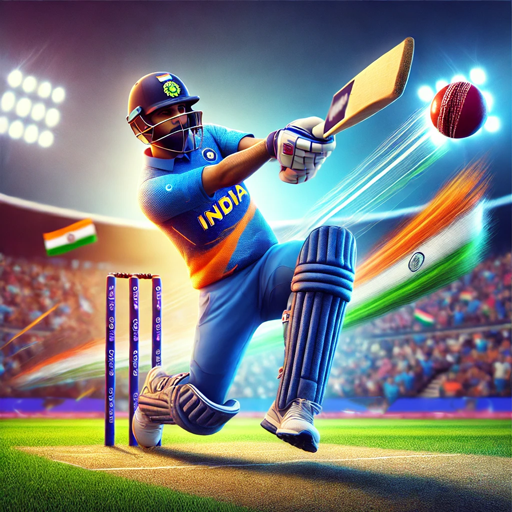Cricket is one of many games in the "club ball" sphere that involve hitting a ball with a hand-held implement. Others include baseball (which shares many similarities with cricket, both belonging in the more specific bat-and-ball games category[5]), golf, hockey, tennis, squash, badminton and table tennis.[6] In cricket's case, a key difference is the existence of a solid target structure, the wicket (originally, it is thought, a "wicket gate" through which sheep were herded), that the batter must defend.[7] The cricket historian Harry Altham identified three "groups" of "club ball" games: the "hockey group", in which the ball is driven to and from between two targets (the goals); the "golf group", in which the ball is driven towards an undefended target (the hole); and the "cricket group", in which "the ball is aimed at a mark (the wicket) and driven away from it".[8]
It is generally believed that cricket originated as a children's game in the south-eastern counties of England, sometime during the medieval period.[7] Although there are claims for prior dates, the earliest definite reference to cricket being played comes from evidence given at a court case in Guildford in January 1597 (Old Style, equating to January 1598 in the modern calendar). The case concerned ownership of a certain plot of land, and the court heard the testimony of a 59-year-old coroner, John Derrick, who gave witness that:[9][10][11]
Being a scholler in the ffree schoole of Guldeford hee and diverse of his fellows did runne and play there at creckett and other plaies.
Given Derrick's age, it was about half a century earlier when he was at school, and so it is certain that cricket was being played c. 1550 by boys in Surrey.[11] The view that it was originally a children's game is reinforced by Randle Cotgrave's 1611 English-French dictionary in which he defined the noun "crosse" as "the crooked staff wherewith boys play at cricket", and the verb form "crosser" as "to play at cricket".[12][13]
One possible source for the sport's name is the Old English word "cryce" (or "cricc") meaning a crutch or staff. In Samuel Johnson's Dictionary, he derived cricket from "cryce, Saxon, a stick".[9] In Old French, the word "criquet" seems to have meant a kind of club or stick.[14] Given the strong medieval trade connections between south-east England and the County of Flanders when the latter belonged to the Duchy of Burgundy, the name may have been derived from the Middle Dutch (in use in Flanders at the time) "krick"(-e), meaning a stick (crook).[14] Another possible source is the Middle Dutch word "krickstoel", meaning a long low stool used for kneeling in church that resembled the long low wicket with two stumps used in early cricket.[15] According to Heiner Gillmeister, a European language expert of Bonn University, "cricket" derives from the Middle Dutch phrase for hockey, "met de (krik ket)sen" ("with the stick chase").[16] Gillmeister has suggested that not only the name but also the sport itself may be of Flemish origin.[16]

